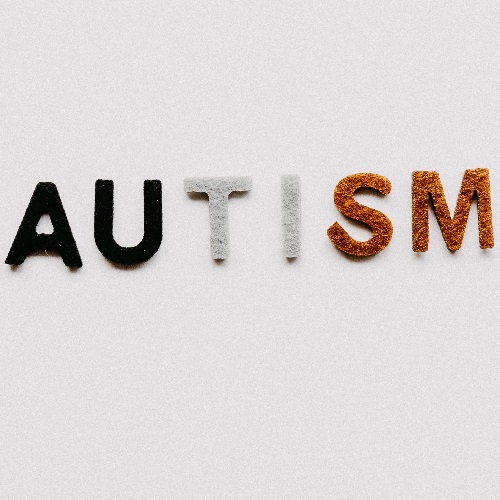One in 100 people have been diagnosed as being on the autism spectrum. This equates to around 700,000 autistic people in the UK alone. These figures do not include people on the spectrum who have not been diagnosed, so the actual number may be much higher. To mark Autism Awareness Day on the 2nd of April, we are looking at what autism is and challenging some common misconceptions.
What is Autism?
Autism is a developmental condition that impacts communication and behaviour. It is a highly variable condition, affecting everyone differently. Autistic people are born with the condition and will have it for their entire life. You may have heard of the term ‘neurodivergent’ to describe someone with autism. This means that their brain works differently from many other people’s – most people would be considered ‘neurotypical’.
The medical name for the condition is autism spectrum disorder (ASD). It is sometimes known as autism spectrum condition (ASC). As it is a spectrum condition, autistic people can display a wide variety of traits.
Traits of Autism
Promoting autism awareness means being mindful of the traits people on the autism spectrum may display. The following is a non-exhaustive list of behaviours and difficulties associated with autism:
- – Struggles communicating and interacting with others
- – Difficulty understanding other people’s feelings
- – Sensory sensitivities, such as discomfort or stress from bright lights or specific textures
- – Anxiety in unfamiliar situations and social events
- – Taking longer to process and comprehend information
- – Repetitive behaviours
- – Special, sometimes obsessive interests
In the past, terms such as ‘severe’ and ‘high functioning’ were used to describe diagnoses of ASD. Nowadays, with an increase in autism awareness and understanding, these terms are falling out of common usage. You may also be familiar with the term ‘Asperger’s’, which is a form of autism spectrum disorder.
What Causes Autism?
Research is still ongoing into the causes of autism. Evidence points towards it being genetic, though the exact genes that cause autism have not been identified.
There is no evidence that autism is caused by a person’s upbringing. Rather, it is a condition they are born with. Upbringing may impact a person’s ability to manage their autism but will not determine whether they have it or not.
One of the most harmful misconceptions is that autism is caused by vaccines. This is not true and has been proved false by numerous studies. Not only is this a negative attitude towards people on the autism spectrum, but it also spreads dangerous misinformation about lifesaving vaccines.
Similarly, some groups lobby for a ‘cure’ for autism. There is no cure, and most doctors and autistic people argue that it is not a condition that needs to be ‘cured’. Instead, people are asked to exercises autism awareness and be mindful of the needs of autistic people.
Read this advice from the National Autistic Society for identifying fake ‘cures’.
Misconceptions
Autism as a condition was not properly identified until 1940. Even then, however, the scope of what autism is was very narrow. Moreover, many prejudices and misconceptions became ingrained in the public consciousness, pushed by inaccurate research and fearmongering.
It is important to challenge these misconceptions and highlight what is fact and what is false.
1. Autistic People Lack Empathy
It is not inaccurate to say that autistic people can struggle with social interactions. They may not be able to read a person’s body language or will be unable to identify the meaning of someone’s tone of voice. As a result, they may appear not to notice how other people are feeling, which can result in them appearing insensitive.
However, the reality is that most autistic people are highly concerned with the feelings of others. They want their friends to be happy and are receptive to people who are upset. The struggle comes from recognising if this is the case. If someone says they are ‘fine’, an autistic person is more likely to take this literally than pick up on other social cues. They may not pick up on sarcasm, for example. They are also likely to display their own emotions differently to neurotypical people. This can make it harder for them to understand another person’s reactions, as they will be different from their own.
2. Boys Are More Likely to Develop Autism
This is a common misconception that has replaced the idea that only boys develop autism. However, this is largely because, historically, autism studies have been centred around male subjects. Girls remain less likely to receive an autism diagnosis not because less have the condition but because the assessment model is not designed to include them.
As a result, many girls have grown up ‘masking’ their condition. This is a term used to describe how autistic people learn certain behaviours and suppress others as a means of fitting in. Unfortunately, ‘masking’ can have a negative impact on mental health. Some people have also argued that autism is overlooked in girls as certain traits are seen to fit in with gender stereotypes. Fortunately, advancements in autism awareness are helping more girls receive a diagnosis.
3. Autistic People Are All Geniuses
Media depictions of people on the autism spectrum have encouraged a narrative of autistic people being socially awkward misunderstood geniuses. Whilst it is certainly true that some autistic people have higher than average IQs, this is not reflective of all people with the condition. As autism is a spectrum, it can present itself in various ways. Some people living with the condition may develop learning difficulties. Others will display a heightened understanding of a certain subject. Stereotypically, this subject is mathematics, but it could also be languages, sports, or gardening.
Many autistic people develop special interests. Sometimes these can present as obsessive. They will learn everything they can about the thing that interests them, which can present as above average knowledge. In reality, however, this is no different to any other person becoming knowledgeable on a subject that interests them.
4. Autistic People Don’t Like Being Touched
This is a myth that has gained prevalence because it is sometimes true. Some autistic people do have sensory difficulties that can make touch uncomfortable for them. As with most autistic traits, however, this is not true for all people with the condition. In fact, there are many autistic people who find comfort in touch.
For some, the pressure of a hug or light massage can help alleviate anxiety. Other will find that this kind of contact is a trigger. No two people on the autism spectrum are the same. The best way to support them is to educate yourself on autism awareness and listen to their needs and preferences.

5. Autistic People Don’t Want Relationships
There is a popular misconception that autistic people are emotionally unavailable and have no interest in friendships or dating. Not only is this inaccurate, but it could also be harmful. Autism can often mean that the individual fails to understand social cues and rules that neurotypical people take for granted. However, just because an autistic person does not understand these rules does not mean they are uninterested in making friends or finding love. For some, struggling to form and maintain friendships is a major cause of mental health issues.
Some autistic people are asexual, but there are plenty who identify differently, such as straight or gay. In this regard, there isn’t any difference between people on the autism spectrum and those who are not. There are many autistic people in happy relationships. Some are with other autistic people; others are not. Many autistic people also have children.
6. There Is an Autism Epidemic
In recent years, there has been an increase in autism diagnoses in the UK. Some people have argued that there is an ‘autism epidemic’ that needs to be addressed. However, this is a misconception, as well as a potentially harmful attitude. The first problem with this statement is the term ‘epidemic’. This implies that autism is a disease – it is not.
The other side of this coin is that an increase in diagnoses does not mean an increase in people with the condition. Rather, it reflects increased understanding of autism in modern medicine. Due to more autism awareness in the world, more people are being diagnosed who may have been overlooked before.
Challenging Misconceptions
As with many things, education is the answer to dispelling these myths and others. Increased autism awareness is crucial to making these misconceptions a thing of the past. It will also help to make the world more accommodating for autistic people.
The following resources can provide additional information on autism and how to support people with the condition.
Always be mindful of where you source your information. Support organisations with autistic members and management, and avoid groups that discuss cures or ‘defeating autism’. Furthermore, be willing to listen to autistic people. For example, many autistic people oppose the use of the puzzle piece symbol.
Adult Autism Diagnosis
With increase autism awareness in society, there has been an increase in adults seeking diagnosis for themselves. Many of these adults may have been overlooked as children due to the misconceptions outlined above. Moreover, many women do not receive a diagnosis until they are adults.
The National Autistic Society have a guide for adults who think they might be autistic. You can also read the NHS guide to getting an autism diagnosis.
Our Mission
At Telecare Choice, we believe in providing peace of mind to our elderly and disabled users. A personal alarm allows you to easily request help at any time, supporting you in living independently at home. If you have a fall or feel unwell, you need only press the button on your pendant alarm and you will be connected to our 24/7 Monitoring Centre. They will then arrange help by alerting your designated emergency contacts.
You can find out more by contacting our helpful customer service team on 0800 635 7000. You can also reach us by filling in our contact form.
Order your Telecare alarm online today and receive free next-day delivery.



